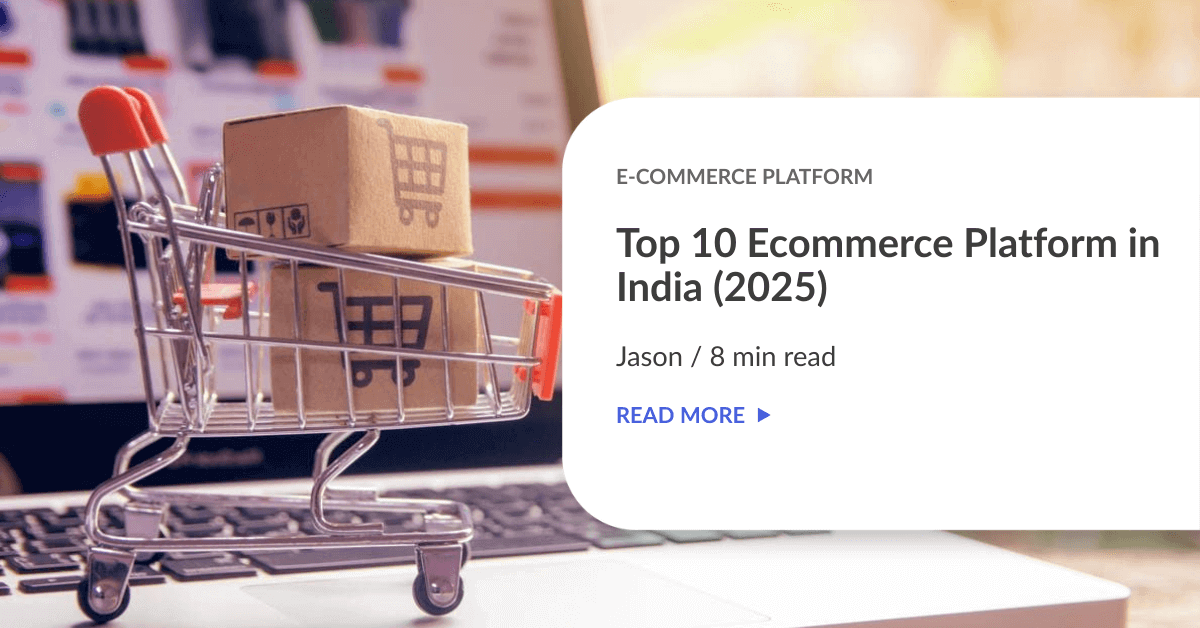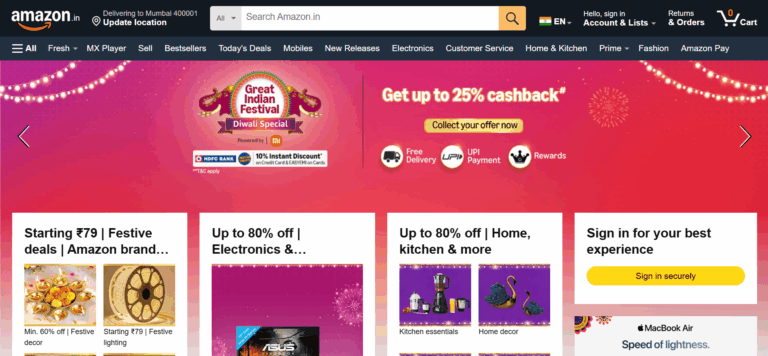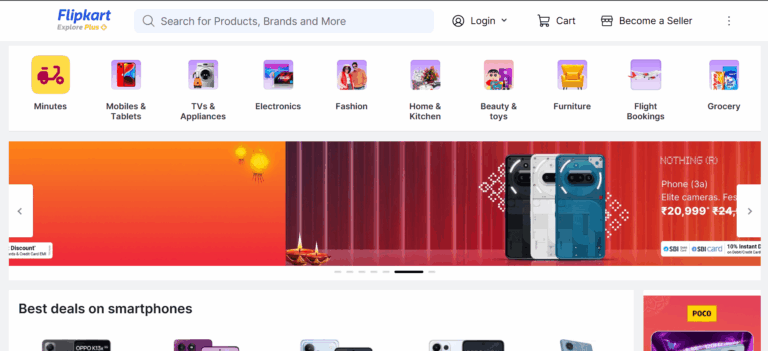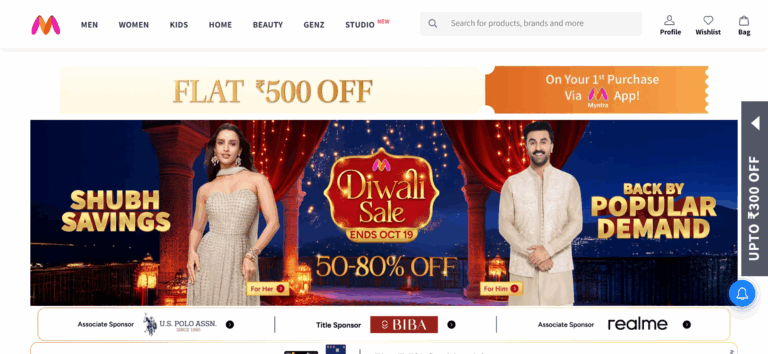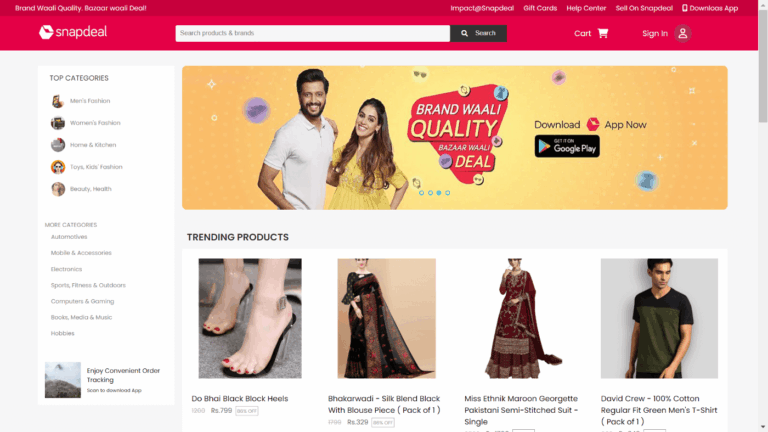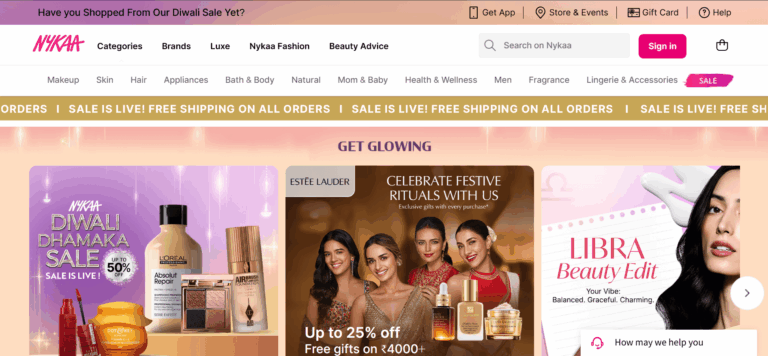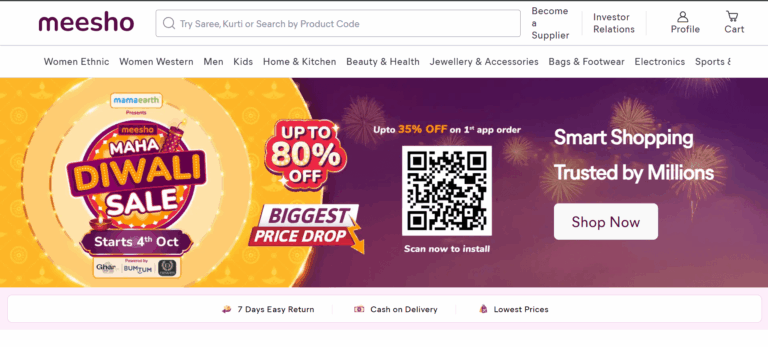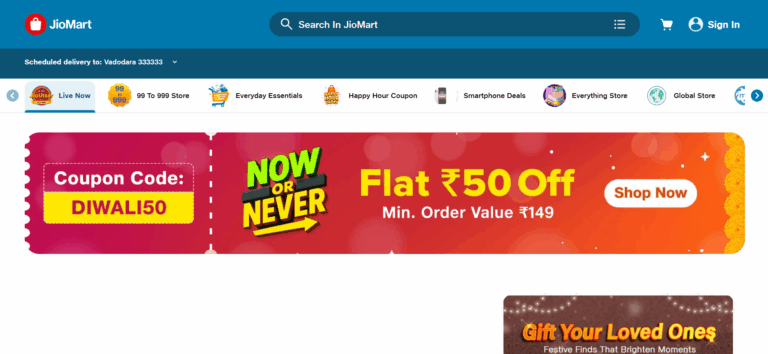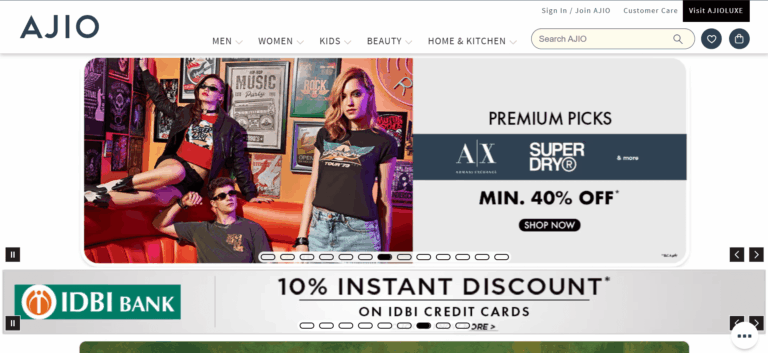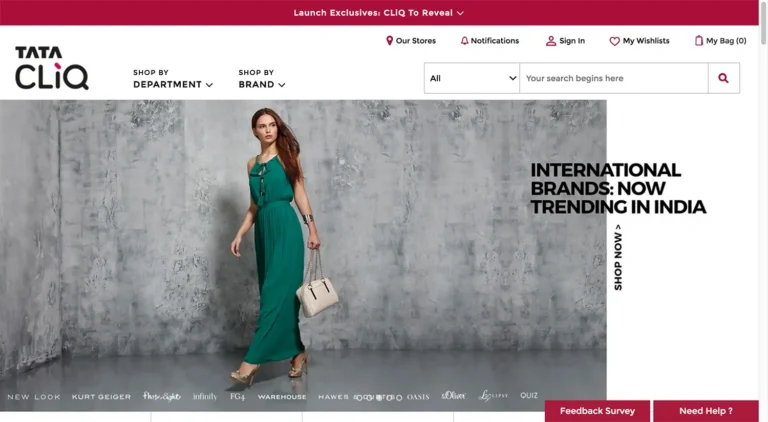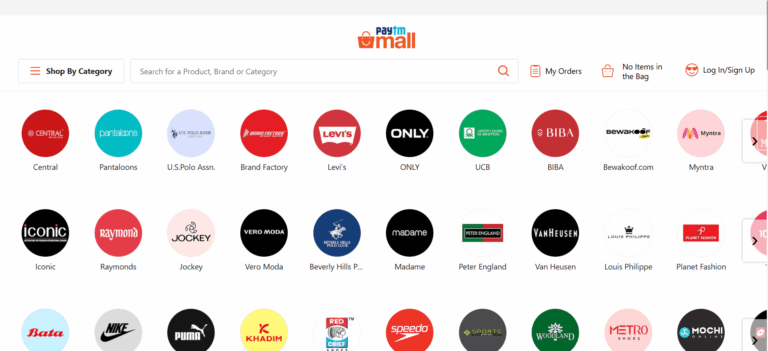India’s e-commerce market is buzzing with energy. From everyday essentials to fashion and tech, millions of people are shopping online every day.
If you’re looking to start selling, here’s a quick look at the top e-commerce platforms in India and how they can help your business grow.
Contents
Overview of E-commerce Platform in India (2025)
By 2025, India’s e-commerce market is booming, fueled by affordable internet, rapid smartphone adoption, and growing digital payment use through platforms like UPI and Paytm. Major players such as Amazon India, Flipkart, Myntra, and Nykaa dominate the market, while niche and regional marketplaces continue to rise.
Indian consumers are increasingly turning to e-commerce platforms for convenience, exclusive deals, and access to a wider range of products beyond what’s available locally. For sellers, this vibrant market offers huge potential — success comes from choosing the right platform, optimizing product visibility, and delivering a smooth customer experience.
Top E-commerce Platforms in India
1. Amazon India
Amazon India is the largest e-commerce platform in the country, offering nationwide reach, trusted logistics, and millions of active buyers. Its wide product range, Prime membership benefits, and advanced seller tools help businesses gain strong visibility and build customer trust.
Sellers choose Amazon India for its massive audience, credibility, and efficient fulfillment services (FBA). However, intense competition, advertising costs, and platform fees can significantly reduce profit margins, especially for small or new sellers.
2. Flipkart
Flipkart is one of India’s most popular e-commerce platforms, especially strong in electronics, fashion, and everyday essentials. Sellers benefit from its massive user base, strong brand reputation, and major sale events like Big Billion Days, which drive huge traffic and sales spikes.
Sellers choose Flipkart for its local dominance, marketing reach, and trusted payment system. However, intense price competition, mandatory discounts, and high promotional costs can significantly reduce profit margins.
3. Myntra
Myntra is India’s leading fashion and lifestyle e-commerce platform, ideal for sellers targeting style-conscious and trend-driven shoppers. Its curated collections, strong branding, and frequent marketing campaigns create high visibility and engagement for fashion products.
Sellers choose Myntra for its fashion-focused audience, premium image, and robust logistics network. However, entry is selective, and commission rates are higher than on general marketplaces, making it more suitable for established fashion brands.
4. Snapdeal
Snapdeal is an Indian e-commerce platform popular for affordable, budget-friendly products, attracting price-sensitive and mass-market shoppers. Sellers benefit from its wide reach in tier-2 and tier-3 cities, making it suitable for high-volume, low-cost items.
Sellers choose Snapdeal for its access to price-conscious audiences and simple onboarding process. However, profit margins are often slim, and the platform’s weaker brand image compared to Amazon or Flipkart can make building trust more challenging.
5. Nykaa
Nykaa is India’s leading platform for beauty, skincare, and personal care products, attracting loyal and high-spending customers. Sellers benefit from its strong brand reputation, curated product offerings, and trusted logistics, which help build credibility for premium products.
Sellers choose Nykaa for its targeted, quality-conscious audience and marketing support. However, competition is intense, and strict quality and compliance requirements can pose challenges for new or smaller sellers.
6. Meesho
Meesho is one of India’s fastest-growing e-commerce platforms, especially popular for reselling and social commerce. It allows individuals and small businesses to sell products directly through WhatsApp, Facebook, and Instagram, making it easy to start with little or no investment.
Sellers choose Meesho because of its low entry barriers, free product listings, and access to millions of value-conscious Indian buyers. However, since many sellers offer similar products, competition is high, and profit margins can be thin without strong marketing or differentiation.
7. JioMart
JioMart is a leading Indian platform for groceries and household essentials, leveraging Reliance’s extensive offline retail network. Sellers benefit from access to millions of repeat buyers across both urban and rural areas, making it ideal for FMCG and daily-use products.
Sellers choose JioMart for its trusted brand, integrated logistics, and recurring customer base. However, as the platform is still expanding its online presence, visibility and traffic are lower compared to giants like Amazon or Flipkart, which may limit initial sales.
8. Ajio
Ajio is a fast-growing Indian platform focused on fashion and lifestyle, particularly trendy, affordable clothing and accessories. Sellers benefit from its youthful brand image, fresh collections, and strong appeal to style-conscious shoppers, making it ideal for fashion-oriented businesses.
Sellers choose Ajio for its fashion-focused audience, marketing support, and growing popularity. However, its reach is smaller than Myntra, and selective onboarding can make it challenging for new or lesser-known brands to join.
9. Tata Cliq
Tata Cliq is an Indian e-commerce platform focusing on premium fashion, electronics, and lifestyle products, leveraging Tata’s strong and trusted brand reputation. Sellers benefit from high credibility and access to quality-conscious shoppers, making it ideal for branded or luxury items.
Sellers choose Tata Cliq for its premium audience, brand trust, and curated marketplace. However, its customer base is smaller and more niche, which may not be suitable for mass-market or low-cost products.
10. Paytm Mall
Paytm Mall is an Indian e-commerce platform integrated with Paytm’s extensive payments ecosystem, giving sellers access to millions of digital-first shoppers. Its cashback offers, wallet integration, and promotions make it attractive for products like electronics, fashion, and everyday essentials.
Sellers choose Paytm Mall for its tech-savvy audience, seamless payment system, and promotional tools. However, its traffic is lower than Amazon or Flipkart, and competition from bigger marketplaces can make scaling sales more challenging.
How EasyParcel Helps You Deliver to India
- Step 1
- Step 2
- Step 3
Quote and Book on EasyParcel
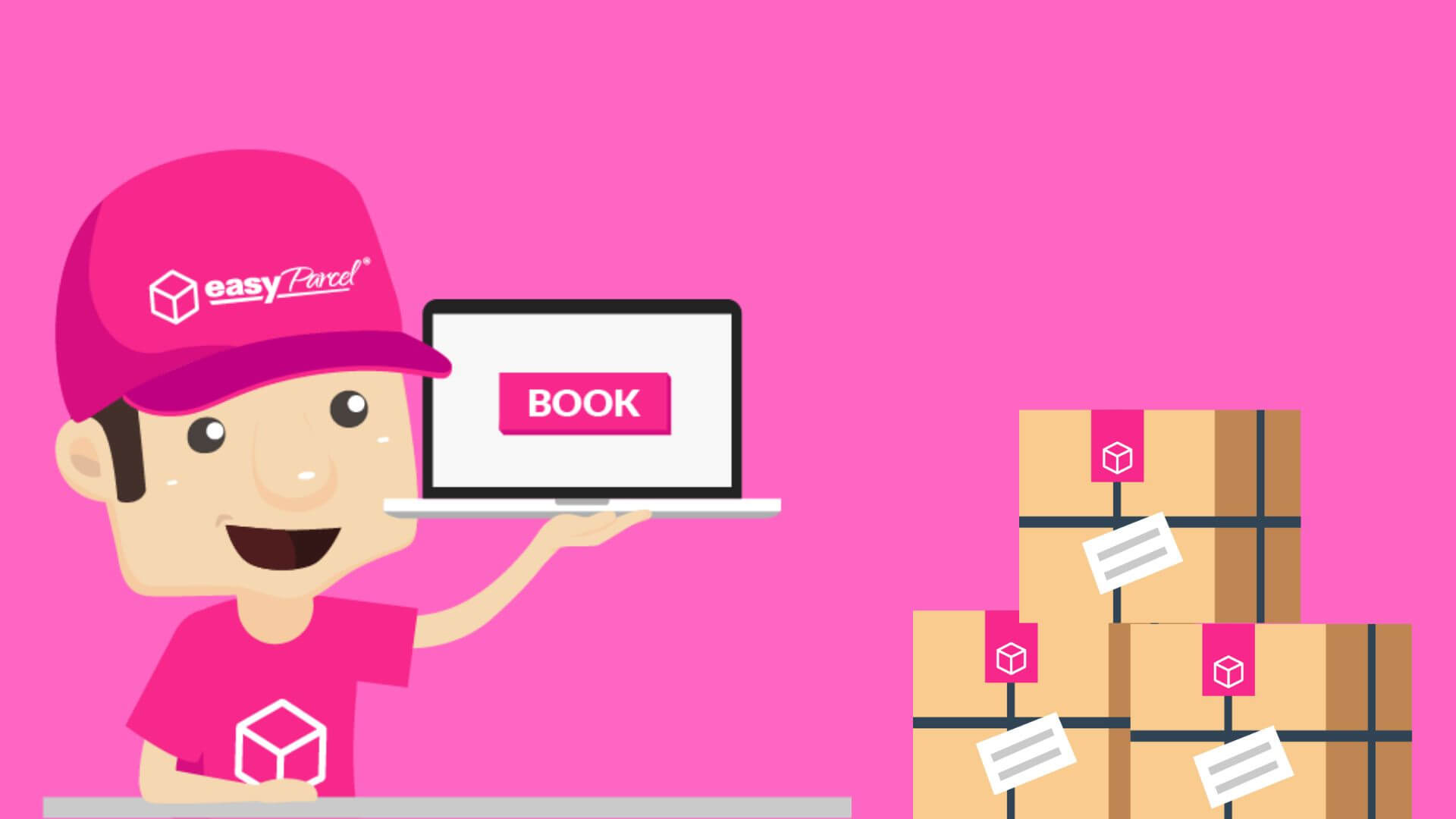
Go to your EasyParcel account then click “Send Parcel” and select “International Delivery”. After that, fill in your pick up and drop off details including the time and date.
Choose the Right Courier

After you fill in all the required shipment details and get a quote, you’ll be directed to the courier options list. In EasyParcel, you can find several trusted international couriers such as SF Express, FedEx, and Aramex that provide reliable delivery services to India.
Finish Your Booking Payment

After you have decided which courier service you want to use and agree with their service agreements or terms, you can proceed to make your payment. That’s it, once your payment is confirmed, your parcel will be picked up at the selected pick up location.
Selling on e-commerce platforms in India is all about knowing your customers and choosing the right channel. Whether you’re targeting fashion lovers on Myntra, value-driven buyers on Meesho, or tech-savvy shoppers on Amazon, each platform offers unique advantages.
Using EasyParcel helps keep shipping simple, affordable, and reliable, so your business can stand out. EasyParcel welcomes you with a sweet FREE RM10 for your first shipment. And that’s just the beginning! Sign up today and join the fun! Get Free RM10 Now.
 Singapore
Singapore Thailand
Thailand Indonesia
Indonesia